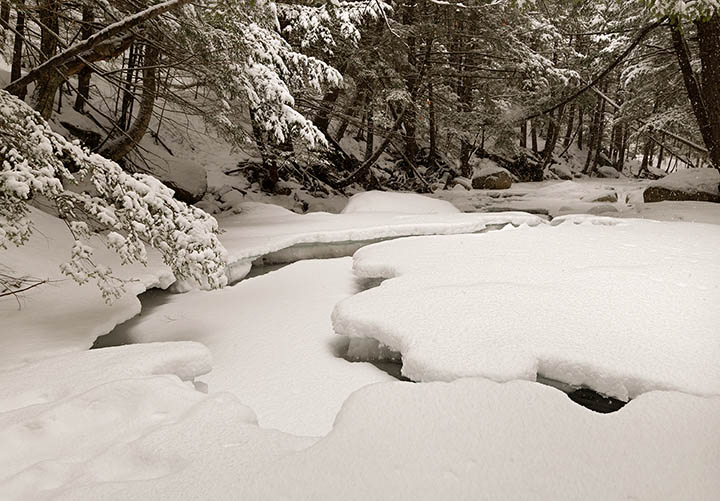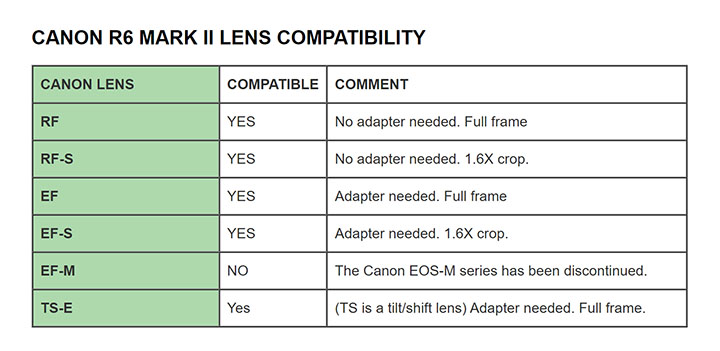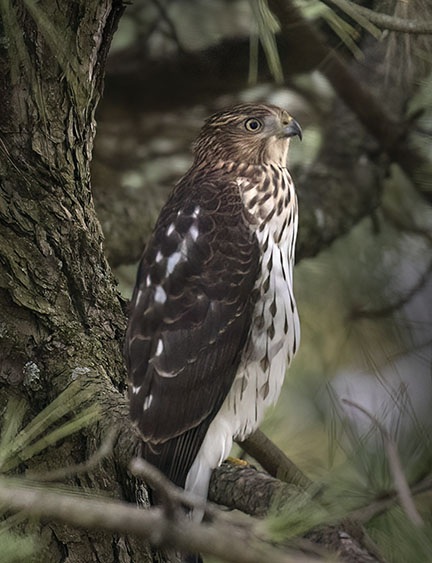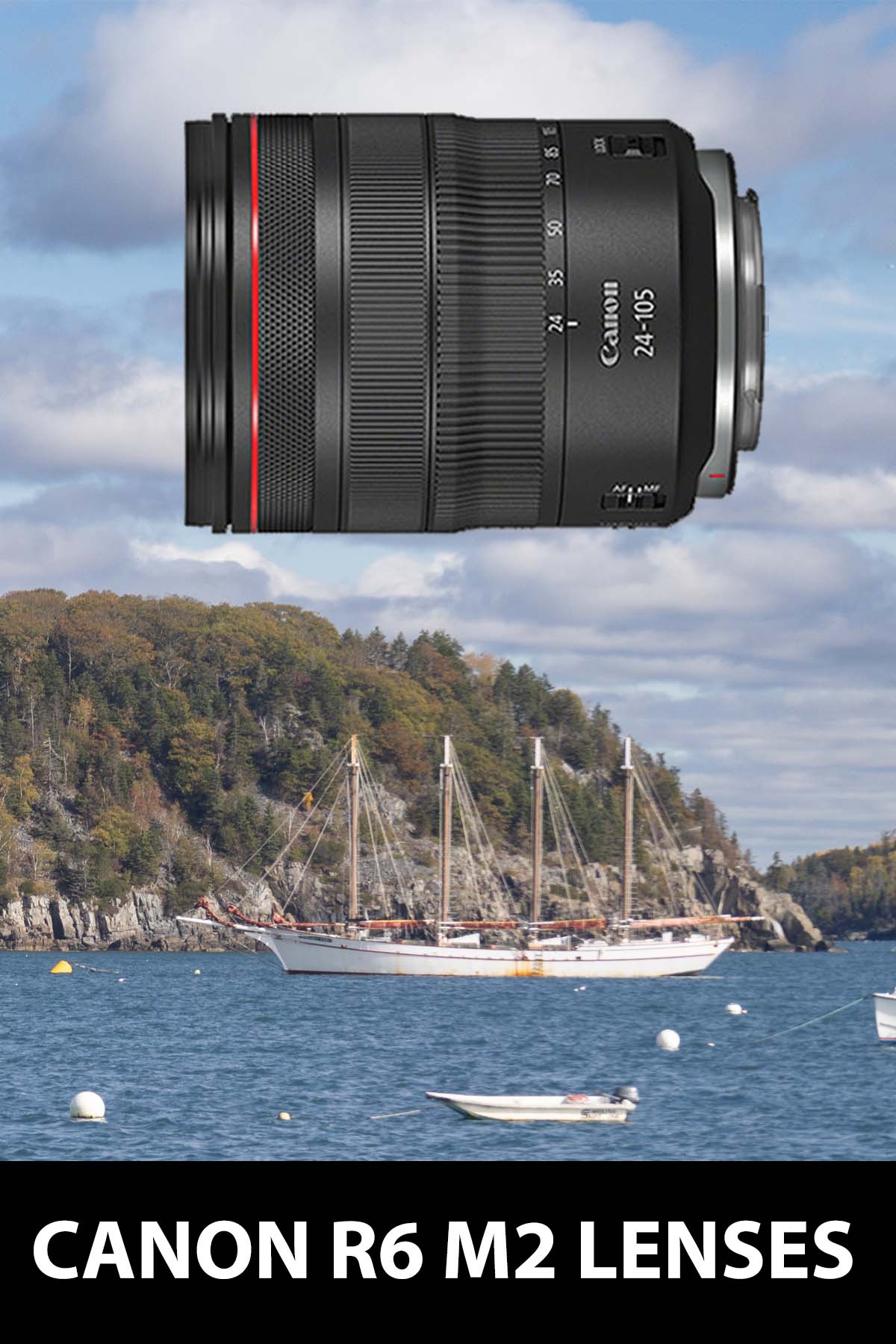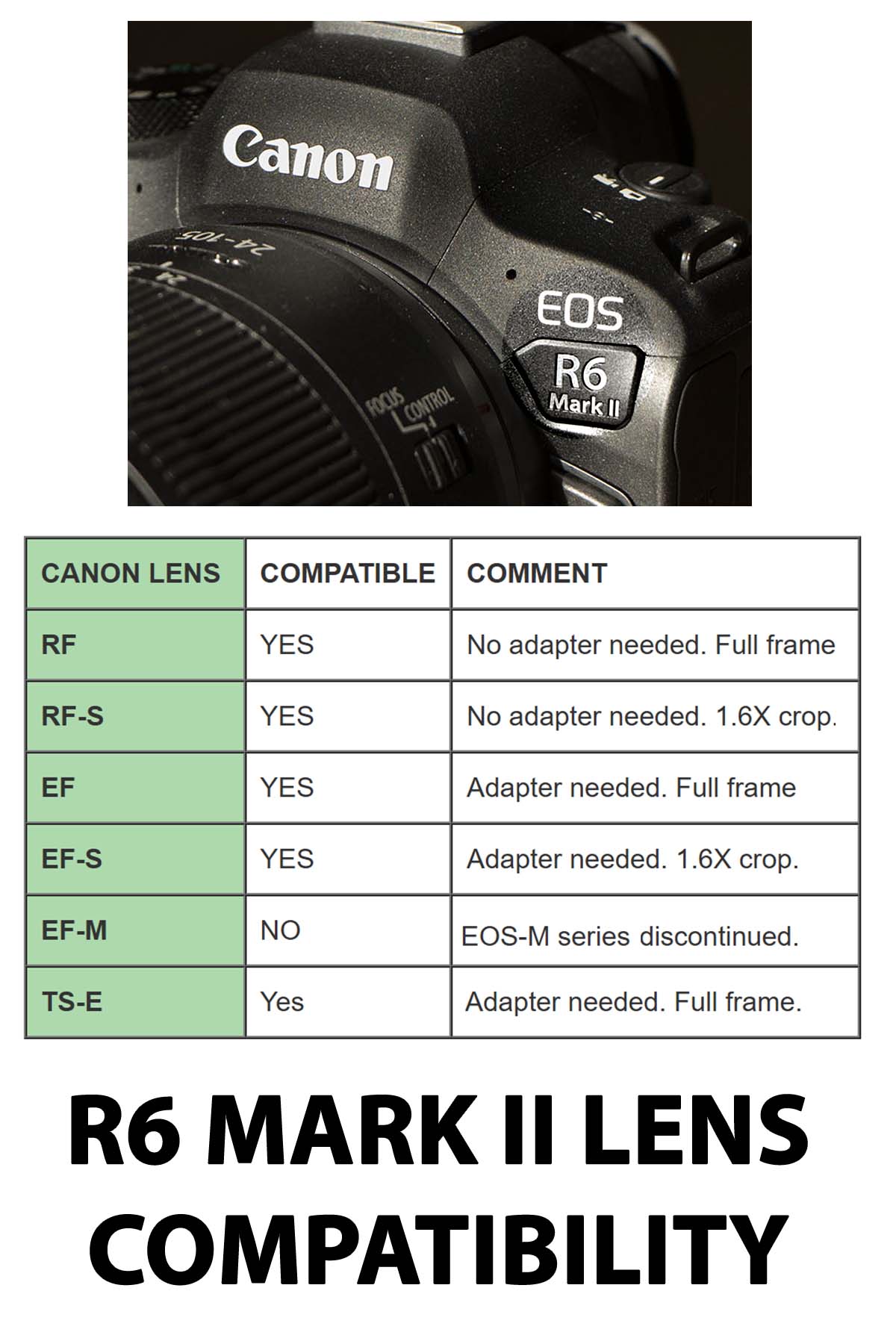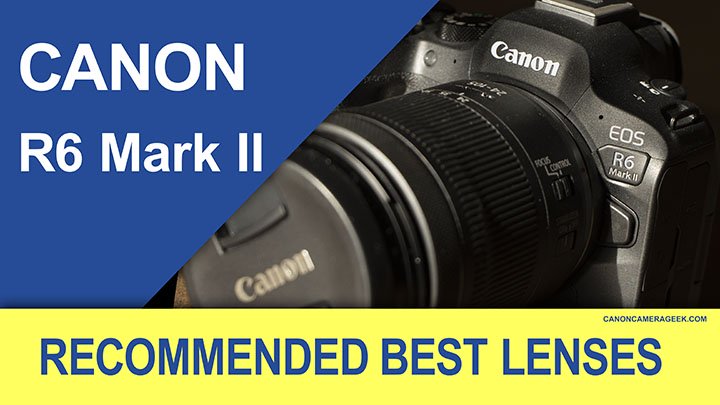
Best Lenses For Canon R6 Mark II
WRITTEN BY: BRUCE LOVELACE
UPDATED: February 16, 2025
This post has been updated since I purchase a Canon RF 24-105 f/4.0 to use with my R6 Mark II in January of 2025. Jump to the update.
The R6 Mark II camera is a remarkable camera in many ways, but what's the best lens to use? There are two main types of Canon lenses that will work with your R6 Mark II. In addition to Canon's quickly expanding line of newer RF lenses, there are many great EF lenses you can use on an R6 Mark II using one of the EF EOS-R adapters. I use both the RF and EF types of lenses on my R6 Mark II.
Based on my over 20 years of using Canon lenses, I have recommendations. I'll provide my suggestions for the best lenses to use on the Canon R6 Mark II camera. The most important factor to consider first in choosing the right lens is focal length. Then you can decide which type works best for you. Most of these recommended lens come in EF and RF versions.
Additionally, this R6 Mark II lens guide will give you a lens compatibility table for the R6 Mark II as well as helpful examples of photos taken with specific recommended lenses.
Canon RF Lenses
RF lenses are the native lens mount for the Canon EOS R system. They are designed to take full advantage of the system's features, such as dual pixel CMOS AF and in-body image stabilization. RF lenses are available in a wide variety of focal lengths, from wide-angle to super telephoto.
This includes the RF lenses for full frame mirrorless cameras, like the R6 Mark II, as well as the smaller RF-S lenses intended for the smaller APS-C crop sensor cameras
Canon EF Lenses
EF lenses are the older lens mount for Canon EOS cameras. They are still compatible with the EOS R system using an EF-EOS R adapter. EF lenses offer a wide range of focal lengths and features, but some of them may not perform as well as RF lenses on the EOS R system.
This includes the larger EF lenses for full frame DSLR cameras, and mirrorless like the R6 Mark II, as well as the smaller EF-S lenses intended for the smaller APS-C crop sensor cameras.
Canon R6 Mark II Lens Compatibility
It's not as complicated as it at first seems to be. The Canon R6 Mark II camera can take EF, EF-S, RF, RF-S. and TS-E lenses. See the compatibility table below.
| CANON LENS | COMPATIBLE | COMMENT |
| RF | YES | No adapter needed. Full frame |
| RF-S | YES | No adapter needed. 1.6X crop. |
| EF | YES | Adapter needed. Full frame |
| EF-S | YES | Adapter needed. 1.6X crop. |
| EF-M | NO | The Canon EOS-M series has been discontinued. |
| TS-E | Yes | (TS is a tilt/shift lens) Adapter needed. Full frame. |
My R6 Mark II Lenses
Some third-party lenses, like Sigma and Tamron, may or may not be compatible with the Canon mirrorless EOS R system. I recommend you use Canon lenses for Canon cameras.
Here is my personal list of the lenses that I use and on my R6 M2:
RF 24-105mm F/4-7.1 Kit Lens
If I were forced to limit myself to just one lens that I could use with my R6 M2, it would be one of the Canon 24-105mm lenses. I've been using two EF f/4.0 L 24-105mm lenses for almost 20 years, so I'm naturally biased to this focal length, but for good reason. See this comparison for which 24-105mm is the best one for you.
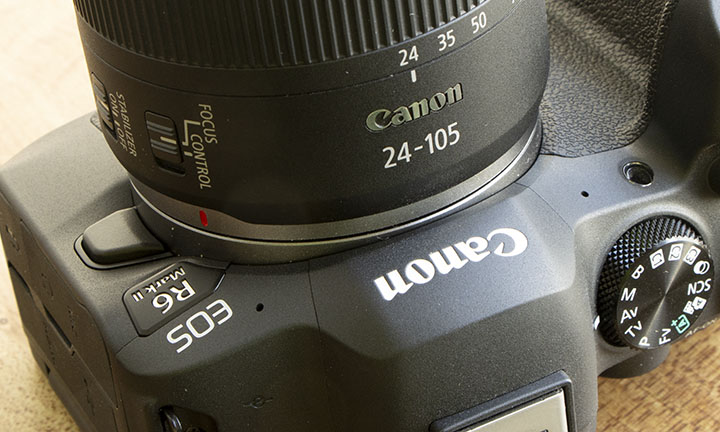 Canon R6 Mark II with my RF 24-105mm kit lens
Canon R6 Mark II with my RF 24-105mm kit lensI leave my RF 24-105mm f/4-7.1 lens RF 24-105mm f/4.0 lens attached to my mirrorless R6 Mark II more than any other lens. It's zoom range makes it a very versatile, walk-around, lens for general purpose photography. The RF 24-105mm f/4.7-7.1 "kit" is only 1/3 of the price of the Rf 24-105 f/4.0 L version. It's also smaller and lighter, which makes it easier for you to carry.
At the wide angle end of its zoom, it's great for shooting landscapes, group photos, interiors, candid photos, and many more. At the telephoto end of its zoom range it only opens up to f/7.1. That is its biggest weakness.
If I want to shoot with the 24-105mm range and I need to shoot at f/4.0 I can always switch to my EF 24-105 f/4.0 and my EF EOS-R adapter.
The photo above was taken from a photo excursion I took to the White Mountains in New Hampshire in the winter. Every photo from my hike to Diana's Baths was taken with my RF 24-105mm f/4.0 L lens. See the 24-105 Diana's Baths photos.
EF 100-400mm F/4.5-5.6 IS II
Pictured below is my EF 100-400mm f/4.5-5.6l IS II mounted to the R6 Mark II camera body.
This is a great lens for you to add to the 24-105mm lens, giving you coverage from very wide to super telephoto focal lengths. With these two lenses you can handle almost any photography subject that you can imagine.
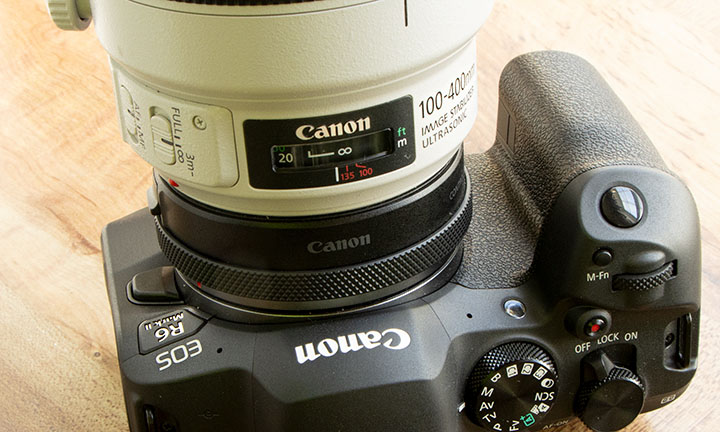 My Canon R6 Mark II with EF 100-400mm lens
My Canon R6 Mark II with EF 100-400mm lensSince I already owned the EF version of the 100-400mm focal length lens I'm not going to spend that money on a duplicate RF version of the lens. With that said, the RF 100-400mm lens is very affordable, due to it's smaller f/5.6-8 maximum aperture. Here's my review of the EF 100-400mm f/4.5-6.3.
The 100-400mm focal length range makes it great for action, sports, wildlife, and bird photography, but who says you have to use a wide angle lens for all of your nature photos? See my landscape detail photo below of the grasses, taken with my EF 100-400mm lens.
 "Those Tarn Reflections"
"Those Tarn Reflections"Taken with Canon R6 Mark II and EF 100-400mm IS II Lens
See more R6 M2 photos here
As an alternative to the EF 100-400 lens, I highly recommend you take a serious look at the Canon RF 100-500mm f/4.5-7.1 L IS USM Lens if you want to photograph wildlife, sports, or birds at great distances. The RF 100-500 is faster and has more magnification than its little sister.
The disadvantage of using this lens is it's steep price. Alternatively if you don't mind losing a bit of maximum aperture width the RF 200-800 is a terrific light-weighted way to shoot even farther -off wildlife and birds.
This is yet another example of Canon increasing usability, and reducing lens size and lens cost at the telephoto end of the scale.
EF 16-35Mm F/4.5-5.6 IS II
There are several Canon EF versions of this lens with the same or similar focal length range, as well as the RF mirrorless version, the Canon RF 15-35mm F2.8L IS USM.
I chose the f/4.0 version over any of the f/2.8 versions. I don't need to shoot at f/2.8 on any of the photos I take with a wide angle lens like this and I love the fact that it's about half the price of the f/2.8 versions.
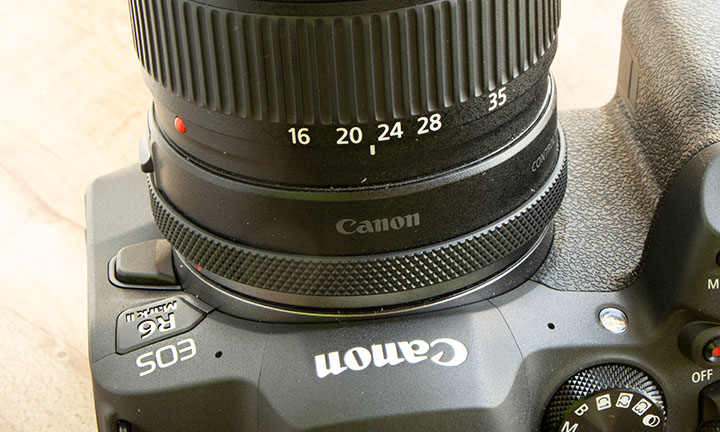 My Canon R6 Mark II with EF 16-35mm L IS lens
My Canon R6 Mark II with EF 16-35mm L IS lensIf used on one of Canon's APS-C cameras, the equivalent angle of view is like a 25mm to 52mm lens would give you, a normal range.
The EF 16-35mm lens is a good match with your full frame R6 Mark II when you want to shoot super wide angle photos like the one below.
On a full frame camera like the R6 and R6 Mark II, the 16-35mm lens gives you the opportunity to portray your subject using a strong perspective. The optical properties of such a wide angle lens makes it easy to get everything in sharp focus. Lenses like this give you a deep depth of field.
RF 100mm f/2.8 Macro
The RF 100mm f/2.8 lens is perfect for shooting portraits in addition to being an amazing lens at shooting close-ups. The lens has a 1.4:1 magnification ratio.
That means you can record an image of your subject that is literally larger than life. The size of the image on your camera sensor is larger than the physical dimensions of your subject. That gives you the ability to take some great, super close macro photos.
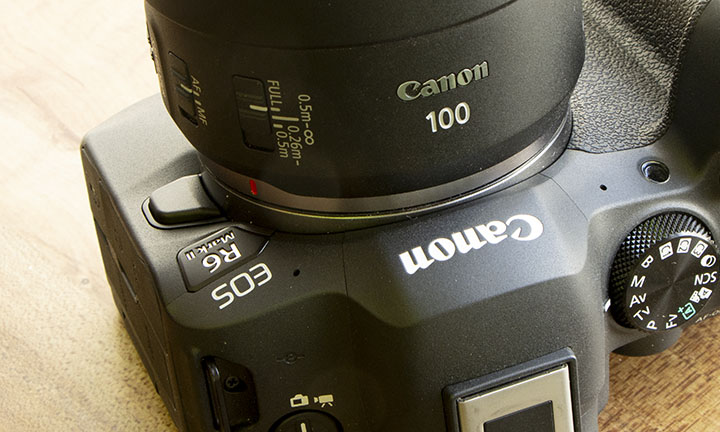 My Canon R6 Mark II with EF 100mm macro lens
My Canon R6 Mark II with EF 100mm macro lensThe RF 100mm lens is my only RF lens that I categorize as a specialty lens and it's a great performing lens. Sharp and fast focusing with great magnification.
There are two disadvantages of using the Canon RF 100mm f/2.8 L lens on your R6 Mark II. Since it is a Non-zooming lens, it's not as versatile as the 24-105 or the 16-35mm lenses. Secondly, it's a big investment. At the time of this post, the average price of the RF 100mm lens is almost $1000.
This video below on the RF 100mm lens shows the beauty of this lens and is worth watching. The lens has a very unique added feature that you won't typically find in other lenses.
Additional R6 Mark II Recommended Lenses
Here are 3 additional lenses that I recommend for your Canon R6 Mark II camera. I have used both 50mm and 24-70mm lenses and there are advantages and disadvantages to them. I don't own any of the RF versions, but that does not mean that they aren't any good.
Canon RF 50mm f/1.8 STM Lens
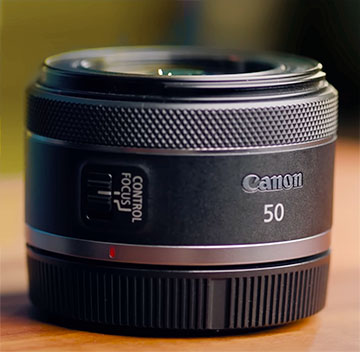 Canon RF 50mm f/1.8 lens
Canon RF 50mm f/1.8 lensThe Canon RF 50mm f/1.8 STM lens is a great match for your R6 Mark II if you want to keep things simple and get a fast lens for super cheap (less than $200).
ADVANTAGES: There are several advantages to using this lens. It's small and light, making it easy to carry and hold.
With a maximum aperture of f/1.8 this is a well suited lens for shooting with your R6 M2 in dim lighting conditions. Leave your tripod and your speedlite at home!
This lens combined with the amazing high ISO performance of the R6 Mark II makes it ideal for night time and astrophotography. It also has the innovative RF mount control ring which you can program for a variety of customized settings, like aperture, shutter speed, or ISO.
DISADVANTAGE: There's only one downside to using this lens with your R6 M2. It doesn't have a zoom. However, For some, that may be an advantage because it forces you to think a bit more and find a better perspective and composition with your photograph.
Canon RF 24-70mm f/2.8 L IS USM
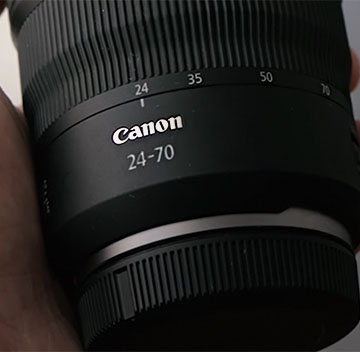 Canon 24-70mm f/2.8 lens
Canon 24-70mm f/2.8 lensThe RF 24-70mm f/2.8 is a very popular choice for wedding and event photographers and is a top seller for online Canon equipment sellers.
ADVANTAGES: It's ideal to have a fast zoom lens that goes from wide to telephoto. When shooting events you don't have time to switch lenses when reacting to different shooting opportunities.
DISADVANTAGE: As I mentioned earlier, this lens is a little underperforming when it comes to its maximum zoom on the telephoto end of the scale. I had the EF version of this lens and I just couldn't get by without the extra reach from 70-105mm that I've been using with the 24-105mm lens for 20 years.
Canon RF 24-240mm f/4-6.3 IS USM Lens
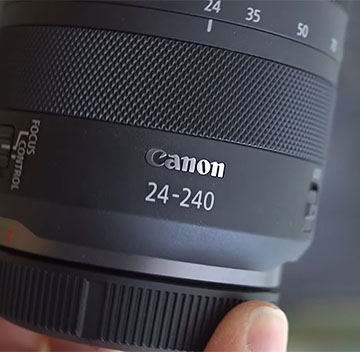 Canon RF 24-240mm lens
Canon RF 24-240mm lensThis lens will be so much fun to use if you decide to mount it to your R6 mark II.
ADVANTAGES: It truly is a one lens does all type of situation. It's 10x zoom rivels the zoom of a "bridge" camera and many of the budget lenses for APS-C crop cameras, but for a full frame mirrorless sensor camera.
At 24mm, you can shoot wide view scenes, large groups of people, and photos in tight spaces. At the superzoom focal length of 240mm you can employ the 5-stop optical image stabilization that's built into this lens for blur free high-magnification photos.
DISADVANTAGE: When you design that much zoom into a single lens, you do develop various lens shortcomings in the form of distortions, aberrations, vignetting, and sharpness issues. Technical tests reveal serious barrel distortion at the 24mm focal length, soft-focusing at certain f/stops and focal lengths, and chromatic aberrations at larger apertures.
This doesn't always mean it's a dealbreaker. Your tolerance for major and minor defects is different than mine. Furthermore, in-camera settings and post capture software editing can minimize and sometimes completely fix these image quality issues.
As always, the best way to determine if it's a good lens is to try it and evaluatte the results with your own photography.
R6 Mark II Lens Summary
If you include all of the EF lenses and the many new RF lenses, it will be easy for you to find the best lens to use on your Canon R6 Mark II camera. With such a variety of lenses that you can combine with your camera and get great photos of any subject.
Remember that online reviews from fellow Canon R6 Mark II users can be incredibly insightful. Keep these in mind as they provide practical evidence of the lens performance, reliability, and compatibility with your camera.
The best place to read the most reviews on camera equipment is Amazon. Check the reviews now.
I hope this article helped!

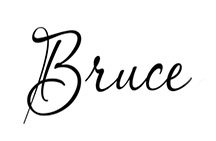
Bruce Lovelace is the publisher of Canon Camera Geek. Read more about him on the About Page. He also publishes how to articles and camera gear reviews at the Photography Tips website.
View some of Bruce's photos on Instagram and Flickr. Join the tribe of followers on YouTube. Bruce also runs photo workshops and provides 1 on 1 digital photography coaching.
Recent Articles
-
Choose the Right Memory Card for Your Canon R6 Mark II: Speed And Size
Nov 05, 25 02:04 PM
R6 Mark II Memory Card -
Canon G1x Mark II vs G1X-Side By Side Comparison of Canon G1X Cameras
Oct 22, 25 08:35 AM
G1 X Mark II vs. G1 X: Is the New Version a HUGE Leap... Or a Massive Mistake? Canon responded to the criticisms of the original G1X. Canon G1X Mark II vs G1X -
Sony RX100 III vs G1x Mark II by Canon. Side by Side Comparison
Oct 22, 25 08:07 AM
It's another one of those epic camera battles, this time not the Canon vs Nikon but rather the RX100 III Vs G1X Mark II battle. -
Canon R6 Mark II FAQ. Answers To All of Your Canon R6 M2 Questions
Sep 01, 25 07:51 AM
There's a lot you can easily learn about Canon's mirrorless R6 Mark II camera. Get your questions answered in this R6 Mark II FAQ -
Canon G1X Sensor Size. What Are The Specs on The Canon G1X Sensor
Aug 26, 25 11:39 AM
Here is a comparison of the Canon G1X sensor size with the rest of the "G" series Canon cameras
